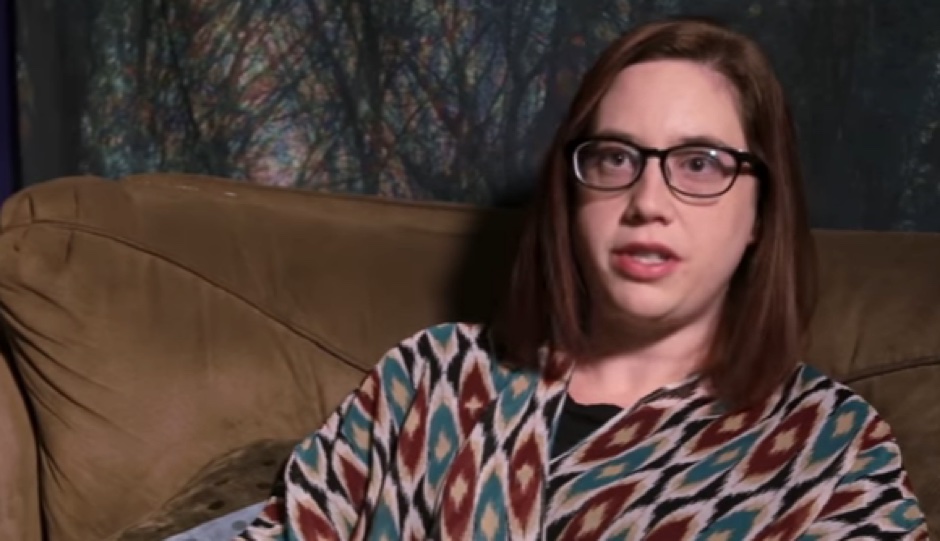Philly Music Hall Owner: We’re Not a “Sex Club”

Deborah Rose Hinchey | Screenshot via Philly Music Hall YouTube
Over the past month, rumors have swirled around plans for turning the historic Tacony Music Hall in lower Northeast Philly into a sex-positive community center. Philly Music Hall — hardly a controversial-sounding name — has drawn concerns from local community members confused by the nature of the venue. Owner and programming director Deborah Rose Hinchey says the unconventional space is not intended as a place to have sex, but a meaningful gathering spot for the alternative-sex community. G Philly recently interviewed Hinchey on what she wants the broader community to understand about her unique venture.
How did the Philly Music Hall concept get started?
For many years, the alt-sex communities of Philadelphia have been relegated to spaces not conducive to the educational and social opportunities these communities want and need. Philly Music Hall started with the belief that through communal effort these communities could create a space organized from the ground up in a culture of consent, communal effort, and education. It is the culmination of years of passionate ideas, debates, and dreams of ways these communities could grow and thrive if nurtured.
Why are such spaces necessary?
We live in a society that marginalizes people for their sexual identities. That’s just a fact. In order for marginalized communities to grow and evolve, it is critical that they have welcoming and consent-driven environments in which to do so safely.
What have the hurdles been in getting the venue established?
We think our largest hurdles have a common thread, which is establishing a level of trust between alt-sex communities, who are cautious but slowly reaching out, and the local community of Tacony and its surrounding area, which is unfamiliar with our communities and therefore skeptical.
The alt-sex community, for its part, has had to grapple with finding accord about how visible it is ready to be. Public stigma is still a significant obstacle to overcome.
What are the misperceptions?
The largest misperception is around the phrase sex positive, what it means and how it governs our center.
It actually has very little to do with sex itself. Essentially, it means viewing human sexuality as a positive and healthy thing so long as it is expressed between informed and consenting adults. It’s a belief that who people have sexual relationships with, and how those relationships work, is a private matter that is not subject to judgment.
Believing in sex positivity doesn’t make us a “sex club.” A sex club’s sole function is to facilitate and monetize sex between its members. They are typically unvetted, open to the public, and serve alcohol.
Our goal is not to facilitate or monetize sexual encounters. Our primary goal is to provide a sober educational and social space for our members. We feel that human sexuality, when expressed in safe and consensual ways between informed adults, is a positive thing, but sex is not the purpose or intention of this space.
Another misperception is that alt-sex is synonymous with LGBTQ. It isn’t. Alt-sex communities grew out of LGBTQ theories and subcultures but do not comprise the entirety of the LGBTQ community. Many members of the alt-sex community fall elsewhere on the spectrum of sexual identities, identifying as straight or even asexual. Alt-sex communities include those that practice nontraditional relationship models including power exchange, open relationships, asexual relationships, BDSM-centered relationships, polyamorous relationships, and more.
It is important to understand that while there is a great deal of overlap between the alt-sex and LGBTQ communities, they are distinct.
What are you doing to combat those misperceptions?
We have spent a lot of time reaching out to members of the community and local civic organizations to hear, understand, and address any concerns they may have. We understand that the residents of the neighborhood have questions about our space and what our intentions and impact upon their community will be, and we’re working hard to help dispel rumors and fears. Sex is not prohibited at some of our events, but sex is not the purpose or intention of this space.
In the days since our space was originally reported in the press, I have met with residents who have understandable questions and concerns, and honestly a fair few who didn’t know spaces like this could exist and want to find ways to interact with it. We are looking forward to more conversations about how the Hall can positively impact the community around us.
What are the next steps?
We have a community meeting with the Tacony Civic Association at the Music Hall on Thursday, March 23rd. We plan to answer questions pertinent to our zoning and address neighbor concerns about our space. After that, our final zoning hearing is in early April.
To find out more about the Philly Music Hall, check out this YouTube video they produced discussing the venue:


